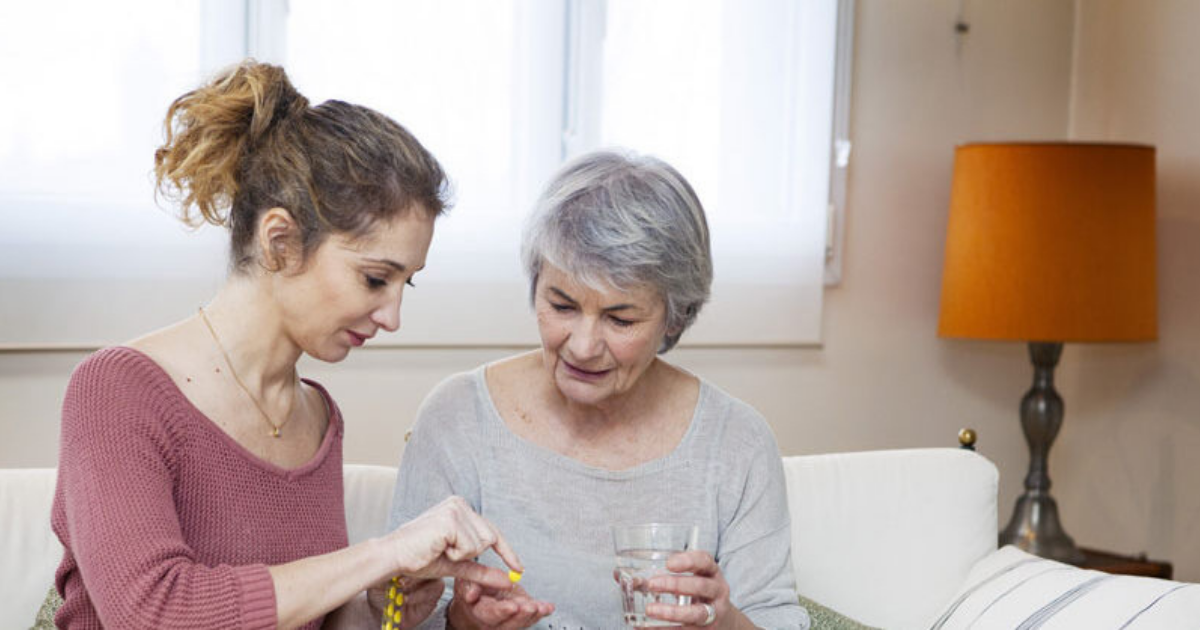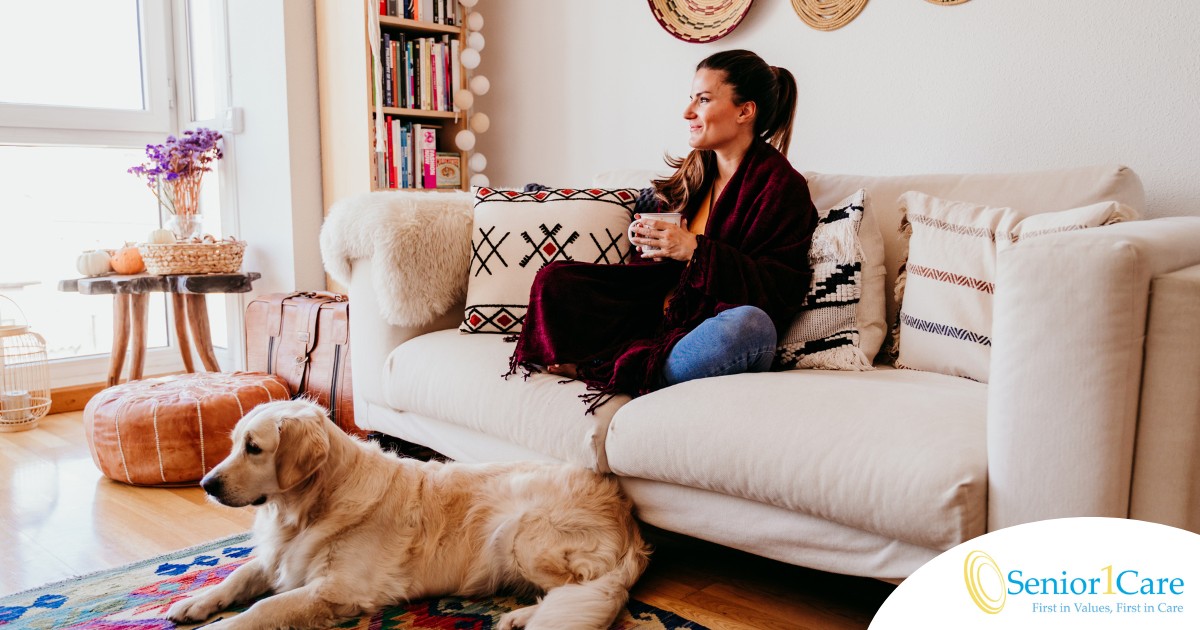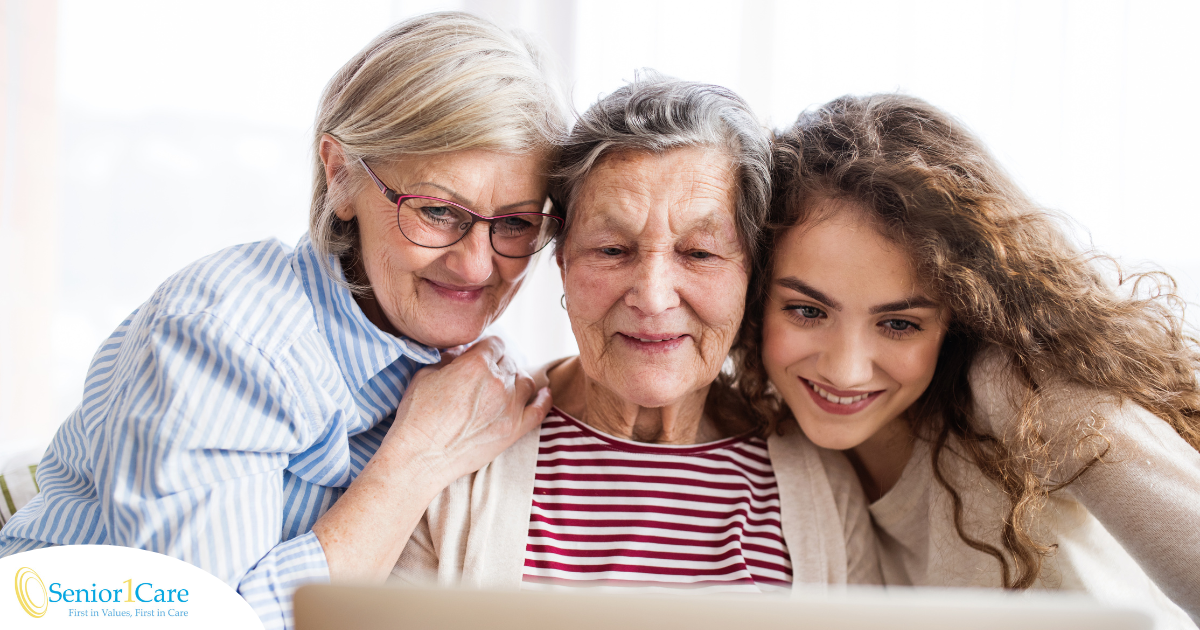The idea of taking care of older family members is nothing new, but since the start of the pandemic caring for aging parents or family has become even more difficult. The complications and threats of COVID-19 for older or higher-risk individuals are many and complex. The adage of ‘you can’t pour from an empty cup’ may feel cliche, but it’s true. In order to best care for your loved ones, you need to take time to care for yourself.
The Unique Stress of Family Caregivers
 Family stress is a unique type of stress that can feel never ending. The relationship dynamic changes when adult children care for their aging parents, issues big and small feel more personal, more emotional, and ultimately more stressful.
Family stress is a unique type of stress that can feel never ending. The relationship dynamic changes when adult children care for their aging parents, issues big and small feel more personal, more emotional, and ultimately more stressful.
If you are a primary or secondary caregiver for others in your family, you likely feel overwhelmed, and at the same time usually unable to truly step away from your responsibilities. Taking breaks frequently is crucial. A true day off can be rare, and this is why self care is essential.
How To Avoid Burnout Through Self Care
The feeling of burnout can be significant and sometimes you have to chip away at it, a little at a time. Following these tips can help you avoid burnout and feel better.
Maintain Your Health
 Making sure you are healthy and well is an essential part of self care. Maintaining your health isn’t as glamorous as baths and facemasks, but making sure you are healthy and you are caring for yourself is the biggest part of self care. This can include eating well, sleeping regularly, taking a multivitamin, and a lot more.
Making sure you are healthy and well is an essential part of self care. Maintaining your health isn’t as glamorous as baths and facemasks, but making sure you are healthy and you are caring for yourself is the biggest part of self care. This can include eating well, sleeping regularly, taking a multivitamin, and a lot more.
Rest
Resting is both getting enough sleep and also making sure you take breaks. Resting may not always be easy if you are a caregiver, so optimizing the breaks you have can be really valuable. Using a white noise machine, a weighted blanket, or blackout curtains can help make sure you’re getting the most restful sleep you can. Stepping away to take a walk around the block can help give you some quiet moments in an otherwise busy day.
Delegate
Delegating can be a challenging task, but asking family, friends, or even hiring additional help can make a big impact on how you feel. Asking your spouse to manage dinner and evening chores on certain days, teaming up with a friend to host a monthly playgroup, or even hiring an at-home caregiver to look after your loved one twice a week, can all help alleviate stress and give you time to rest.
Be Kind to Yourself
One of the biggest ways to help you feel less stressed is tied to your mindset. If you can be kind to yourself and not dwell on past mistakes or imperfections, you will often feel less stressed and more content.
Practice Gratitude
 Similar to being kind to yourself, by practicing gratitude you can help change your mindset. Listing five things you are thankful for each day can help reframe stressful situations and improve your overall outlook and happiness levels.
Similar to being kind to yourself, by practicing gratitude you can help change your mindset. Listing five things you are thankful for each day can help reframe stressful situations and improve your overall outlook and happiness levels.
Move Your Body
Taking a walk, practicing yoga, or working out along to a YouTube video can help you not only feel good in the moment but build your strength and boost your mood. Incorporating opportunities throughout the day where you can move your body and get some exercise can really help you feel better all day long.
Step Away, Even Briefly
Taking a five-minute break can help you remain calm when you start to feel overwhelmed. Pausing when stressed isn’t what we often want to do but can really be the best remedy to helping us approach a situation with a clearer perspective and a better attitude.
Connect with Others
 Talking with others can help us feel better, be that a friend, a therapist, or someone in a similar position. Connecting with other people is a great way to get new ideas or possibly learn about other solutions or options that you may not otherwise hear about. There are often plenty of people in our lives who want to help us but may not know that something is wrong, or how they can help. Talking to those people can help you find solutions together.
Talking with others can help us feel better, be that a friend, a therapist, or someone in a similar position. Connecting with other people is a great way to get new ideas or possibly learn about other solutions or options that you may not otherwise hear about. There are often plenty of people in our lives who want to help us but may not know that something is wrong, or how they can help. Talking to those people can help you find solutions together.
Hire Help, if You Can
Hiring a therapist, an at-home caretaker, a babysitter, or a house cleaning service can all help lighten the load. Not everyone can afford these options, but hiring help occasionally can make an impact on how you feel. Hiring someone to clean your house once a month, or an at-home caretaker to look in on your loved one a few hours a week can give you the space and time needed to rest and recharge. We all need help sometimes.
Taking Care of Yourself and Your Loved Ones
If a car is out of gas it won’t take you where you need to go, the same goes for us too. If we don’t have the energy and care we need, we won’t do our best in helping those we love. Taking some time to take care of yourself isn’t selfish, it’s essential, and even more important for those who actively take care of others. Seek help where you can, be kind to yourself, and take care of yourself.





